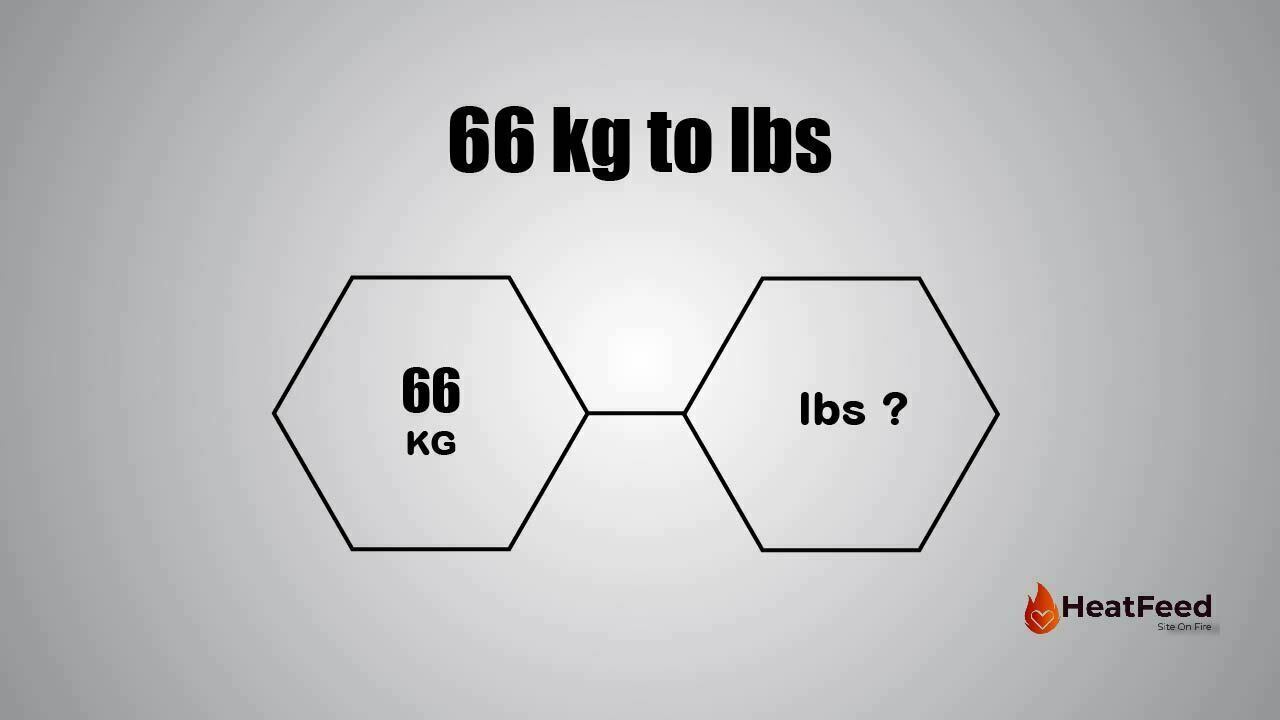66.2kg In Lbs: A Comprehensive Guide To Converting Kilograms To Pounds
Hey there, mate! Ever found yourself scratching your head wondering how much 66.2kg is in pounds? You're not alone, my friend. Whether you're traveling abroad, working out, or just trying to impress someone with your conversion skills, knowing how to convert kilograms to pounds is a pretty nifty trick to have up your sleeve. So, buckle up, because we're diving deep into the world of weight conversions, and by the end of this, you'll be a pro at converting 66.2kg into lbs.
Let's face it, the metric system and the imperial system don't always play nice together. While most of the world uses kilograms, some countries, like the good ol' US of A, prefer pounds. This can get pretty confusing if you're trying to figure out how much your luggage weighs or how much weight you need to lift at the gym. But don't worry, we've got your back. In this article, we'll break down everything you need to know about converting 66.2kg to lbs and why it matters.
Before we dive into the nitty-gritty details, let's get one thing straight. Converting kilograms to pounds isn't rocket science, but it does require a bit of math. Don't worry, though. We'll make sure the math is as easy as pie (or should I say apple pie, since we're talking about pounds?). So, let's get started and turn those kilograms into pounds like a champ.
Read also:Discover Chris Brown Net Worth Age And Personal Life 2023
Here's a quick rundown of what we'll cover:
- What is the difference between kilograms and pounds?
- Why is converting 66.2kg to lbs important?
- How to convert kilograms to pounds step-by-step.
- Common mistakes people make when converting weights.
- Tools and resources to make conversions easier.
Understanding Kilograms and Pounds
Alright, let's start with the basics. What exactly are kilograms and pounds, and why do we use them? Kilograms (kg) are the standard unit of weight in the metric system, used by most countries around the world. Pounds (lbs), on the other hand, are part of the imperial system, which is still widely used in the United States and a few other countries. Think of it like this: kg is the cool international traveler, while lbs is the laid-back local who sticks to its roots.
Now, why should you care about these two different systems? Well, depending on where you are or who you're talking to, one system might make more sense than the other. For instance, if you're planning a trip to Europe, you'll want to know your weight in kilograms. But if you're chatting with your buddy from Texas, they might prefer to hear it in pounds. That's where conversions come in handy.
Why Convert 66.2kg to lbs?
So, why exactly do we need to convert 66.2kg to lbs? There are plenty of reasons, my friend. Maybe you're shopping online for clothes and the size chart uses pounds instead of kilograms. Or maybe you're comparing your weight to someone else's, and they only know their weight in pounds. Whatever the reason, being able to convert between the two units can save you a lot of headaches.
The Math Behind the Conversion
Now, let's talk about the actual math. Don't panic, it's not as scary as it sounds. To convert kilograms to pounds, you simply multiply the number of kilograms by 2.20462. That's the magic number that makes the conversion work. So, if we take 66.2kg and multiply it by 2.20462, we get:
66.2kg × 2.20462 = 145.94lbs
Read also:Exploring The Influence Of Lays Peace Erome On Modern Society
Voila! There you have it. 66.2kg is approximately 145.94lbs. Pretty easy, right? Now, let's break it down even further and explore some other aspects of weight conversions.
Common Mistakes When Converting Weights
Even the best of us can make mistakes when it comes to math, and weight conversions are no exception. One common mistake people make is forgetting the conversion factor. Some folks might think that 1kg is equal to 2lbs, but that's not quite accurate. Remember, the correct factor is 2.20462. Another mistake is rounding too early in the calculation, which can lead to inaccurate results. So, always make sure to do the full calculation before rounding off your answer.
How to Avoid Conversion Errors
Here are a few tips to help you avoid making those pesky conversion errors:
- Always double-check your math.
- Use a calculator if you're not confident in your mental math skills.
- Round off your answer only after completing the full calculation.
- Keep the conversion factor handy for quick reference.
Tools to Make Conversions Easier
Let's face it, sometimes we just don't feel like doing the math. That's where conversion tools come in. There are plenty of online calculators and apps that can do the conversion for you in a matter of seconds. Some even have cool features like voice input or the ability to convert multiple units at once. So, if you're feeling lazy or just want to save time, these tools are definitely worth checking out.
Our Top Picks for Conversion Tools
Here are a few of our favorite conversion tools:
- Metric Conversions: A reliable website for all your conversion needs.
- Unit Converters: A comprehensive tool for converting a wide range of units.
- Unit Converter App: A handy app for on-the-go conversions.
Real-World Applications of Weight Conversions
Weight conversions aren't just useful for math nerds and travelers. They have real-world applications in a variety of fields. For example, in the fitness industry, trainers often need to convert weights when working with clients from different countries. In the culinary world, chefs might need to adjust recipes based on the weight units used in a particular region. Even in the medical field, doctors and nurses might need to convert weights when calculating dosages for medications.
Weight Conversions in Fitness
Let's take a closer look at how weight conversions are used in the fitness industry. Imagine you're a personal trainer working with a client from the UK. They might be used to lifting weights in kilograms, but you're more comfortable using pounds. By converting the weights, you can create a workout plan that makes sense for both of you. Plus, it helps you track progress more accurately over time.
Fun Facts About Weight Conversions
Did you know that the concept of weight has been around for thousands of years? Ancient civilizations used various methods to measure weight, including balance scales and stones. The modern metric system was introduced in the late 18th century, and it quickly became the standard for most of the world. The imperial system, however, has stubbornly hung on in a few countries, leading to the need for conversions like the one we're discussing today.
Interesting Weight Conversion Stories
Here's a fun story for you. In 2003, NASA made headlines when they launched a spacecraft that failed due to a simple unit conversion error. The team had used pounds instead of newtons, leading to a miscalculation that cost millions of dollars. Moral of the story? Always double-check your conversions, folks!
Final Thoughts and Call to Action
Well, there you have it, folks. A comprehensive guide to converting 66.2kg to lbs and everything you need to know about weight conversions. Whether you're traveling, working out, or just trying to impress your friends, being able to convert between kilograms and pounds is a valuable skill to have. So, go ahead and give it a try. Convert a few weights on your own and see how easy it can be.
And don't forget to share this article with your friends and family. Who knows, you might just help someone else become a weight conversion pro. Until next time, keep those conversions coming and stay awesome!
Daftar Isi
- Understanding Kilograms and Pounds
- Why Convert 66.2kg to lbs?
- The Math Behind the Conversion
- Common Mistakes When Converting Weights
- How to Avoid Conversion Errors
- Tools to Make Conversions Easier
- Our Top Picks for Conversion Tools
- Real-World Applications of Weight Conversions
- Weight Conversions in Fitness
- Fun Facts About Weight Conversions
- Interesting Weight Conversion Stories


